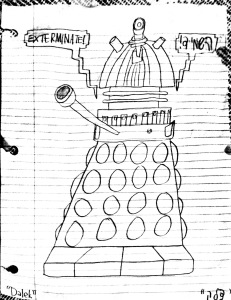Because we are using the triennial system (for which I am currently extremely grateful, although I was not a fan when it was first brought in about a decade ago), I will only be reading the entire Torah over the span of three years. But that’s OK, reading fewer words each week will give me a chance to learn them better and to spend more time pondering their significance.
This week I was reminded how easy it is to find whatever you want in the cryptic words from so long ago.
As an example, look at this passage, that I read just this past Friday as we joyously finished the Torah and started it anew. It’s from the final section of the Torah, Zot Habracha.
כז מְעֹנָה אֱלֹהֵי קֶדֶם, וּמִתַּחַת זְרֹעֹת עוֹלָם; וַיְגָרֶשׁ מִפָּנֶיךָ אוֹיֵב, וַיֹּאמֶר הַשְׁמֵד.
27 The eternal God is a dwelling-place, and underneath are the everlasting arms; and He thrust out the enemy from before thee, and said: ‘Destroy.’
We’ll leave the whole question of deity-sanctioned genocide aside for now. But if you are a Hebrew speaker and have any Whovians in your life, you must have realised that “Destroy” is the wrong translation for הַשְׁמֵד.
Maybe it isn’t as obvious to you as it is to me, since when my son created the adorable bilingual Dalek you see gracing this post, he accidentally used the infinitive instead of the imperative form. His Hebrew was not as well-developed then as it is now, and he tells me that his knowledge of Dalek anatomy was also somewhat lacking.
Or do you think there are no Daleks in the Torah?

